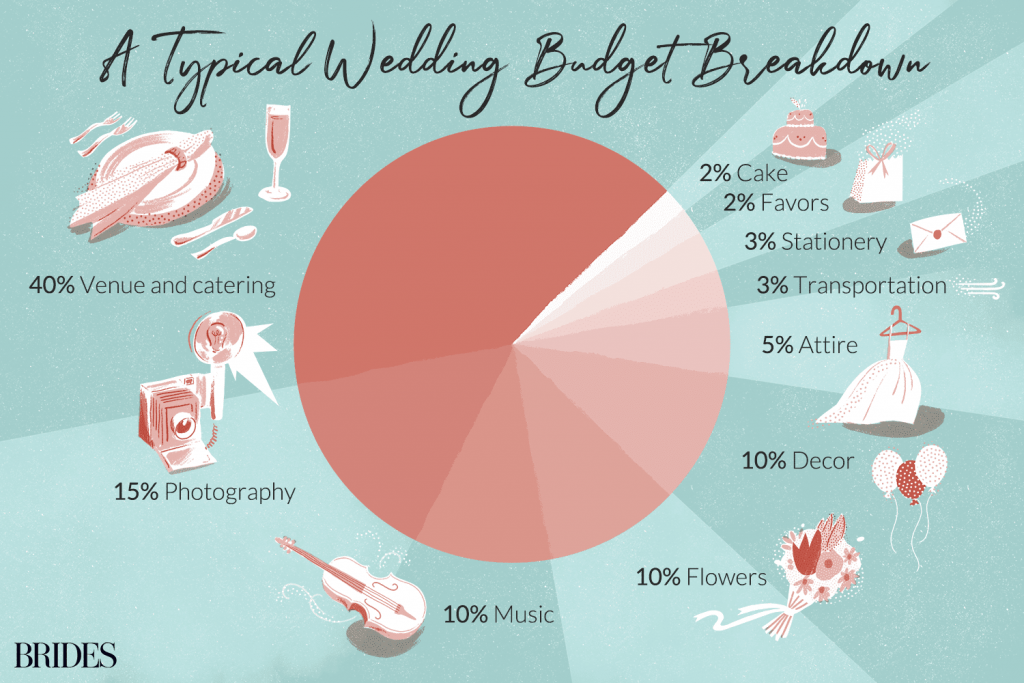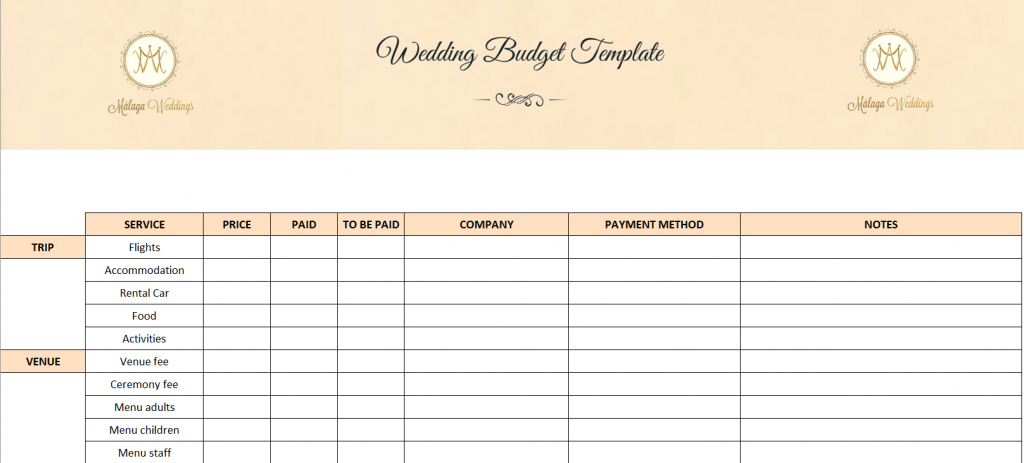Establishing the wedding budget is one of the first things to do when deciding to get married. But how can you avoid exceeding your spending limit and even save money? If you’ve just started planning the big day, we’re here to help.
Wedding budget: what should you consider?

Let’s start with the most obvious thing: not all ceremonies are the same, and it’s not just about wedding budgets. There are several factors that influence the decision on the maximum amount you want to spend on the wedding. First, there is of course what you can actually afford as a couple, but there is not only that. Sit down together at the table and make a list of your priorities, such as the location, the catering and the wedding dress, and next to it assign the amount you are willing to spend on each item.
The guest list also has a significant impact on the wedding budget. There is a per capita cost for food and drink, which is typically the largest expense. Consequently, shortening the list is the fastest and easiest way to increase or decrease costs. Plus, with a smaller wedding you will save more on other details, including decorations, flowers, party favors and invitations.
The day of the week and the month in which you want to organize the party affect the wedding budget: the ceremonies from May to October will probably have higher costs, as well as those fixed at the weekend. Take this factor into account when setting the cap: by choosing to get married at another time of the year, or during the week, you can focus on other priorities on your list, such as entertainment.
Mistakes not to make

The first big mistake many couples make when setting their wedding budget is not keeping track of all their expenses. Try to create an accounting system to group all the items (there are also apps and sites that can help you). Otherwise, you can enter all expenses into an Excel spreadsheet and carefully record each payment.
Knowing all the costs in advance will ensure that your wedding budget can actually cover it all. However, it is impossible to budget for every single unexpected hidden cost – which is why many spouses make the mistake of not considering the unexpected extra expenses. For this reason, in your wedding budget you should already include a quota of about 5% allocated for extraordinary events, extra decorations, unexpected increases in the cost of catering raw materials and so on.
Whatever your wedding budget, avoid stressing yourself out to please everyone. Indulge in your priorities, such as a second wedding dress, a band to warm up the party or an unforgettable honeymoon. Rather, as we have already said, you can save money by reducing the number of guests (yes, in the count there are always at least a dozen people who don’t make sense to invite…).
One last piece of advice
Finally, one last piece of advice: always be realistic. To keep up with the wedding budget, it is good to be informed about market prices, perhaps by asking friends who have just got married. There are many things to consider when it comes to planning your wedding budget, but it doesn’t have to be “a job”.


Leave a Reply
You must be logged in to post a comment.